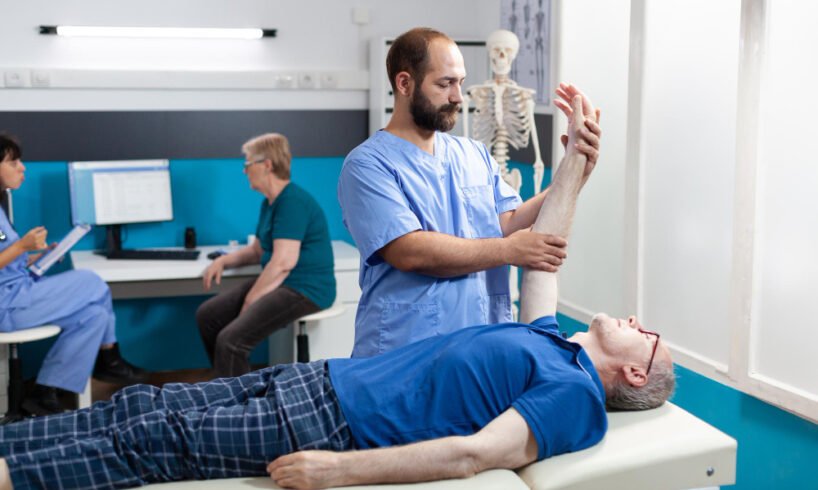
Introduction
Students have a unique opportunity to gain knowledge and hands-on experience through clinical rotations and internships while Studying MBBS in China. These elements are essential to the medical education program because they give students real-world healthcare settings and practical skills. Understanding the structure of the MBBS program in China is essential for students embarking on this journey. Additionally, the introduction will highlight the significance of clinical experience in shaping future physicians and emphasize the importance of this aspect of medical education.
Getting Started with Clinical Rotation
The criteria for clinical rotations differ based on the medical school and program. Rotations usually start when basic material is finished and necessary tests are passed. Throughout the MBBS program, rotation schedules and timing are meticulously organized to provide a thorough educational experience. Students participate in orientation seminars to acquaint themselves with hospital procedures and standards before beginning their first clinical experience. Additionally, peer support networks and mentorship programs can help students make the transition to clinical rotations as smooth as possible.
III. Types of Clinical Rotations Offered
Medical specializations such as internal medicine, surgery, pediatrics, and obstetrics/gynecology are among the many fields of study that are covered in clinical rotations. In addition, students could get the chance to investigate specialty fields including neurology, cardiology, oncology, and several others. Patients from a variety of backgrounds and healthcare situations are accessible for students to get experience with, both in urban and rural hospital settings throughout their clinical rotations. Also, students can customize their clinical experience to fit their career objectives by taking advantage of elective rotations offered in certain fields of interest.
Optimizing Education Throughout Rotations
During rotations, active participation with mentors and medical personnel is essential to optimizing learning. It is recommended for students to take an active role in all aspects of patient care, such as case management, diagnosis, and treatment planning. Students can practice clinical skills and scenarios in a secure setting in simulation laboratories, which helps them become more competent and confident in real-life circumstances. Further improving the learning experience during rotations is the use of technology, like as electronic medical records and virtual patient simulations.
- Linking Theory and Practice via Internships
Internships provide as a link between classroom theory and real-world application in healthcare environments. Students assume more responsibility in patient care under supervision as they go from rotations to internships. The assessment of interns is contingent upon their capacity to fulfill performance benchmarks and exhibit proficiency in critical clinical competencies. Additionally, research projects, quality improvement programs, and multidisciplinary partnerships are all made possible via internships, which enhance students’ educational experiences even more. - Patient Care: Cultural Competence
Effective patient care in a multicultural setting such as China requires cultural knowledge. Students gain knowledge on how to respect ethical norms in the provision of healthcare, negotiate cultural differences, and interact successfully with a variety of patient populations. Gaining cultural sensitivity boosts patient confidence and leads to better health results.
VII. Challenges Faced During Clinical Rotations and Internships
During their clinical rotations and internships in China, overseas students may have difficulties navigating communication obstacles and language limitations. Students may have more stress and effort because of the intricacy of the healthcare system and the requirements of patient care. Resilience, flexibility, and asking for help from peers and mentors who are aware of the special difficulties associated with study MBBS in China are necessary for overcoming these obstacles.
VIII. Advantages of Internships and Clinical Rotations
Take advantage of study MBBS in China through many opportunities of clinical rotations and internships. These encounters provide priceless chances to hone clinical abilities, advance professional growth, and get familiar with a variety of medical situations. Not only can networking and forming relationships with healthcare professionals enhance the educational experience, but it also provides access to potential employment prospects both domestically and internationally.
- Getting Ready for a Career
After MBBS Internships are essential for preparing students with the information and abilities they will need for their future employment in medicine. By utilizing these experiences, students can investigate a range of career opportunities, both domestically in China and beyond. Making the transition from student to practicing physician requires an understanding of the complexities of license and certification requirements. Furthermore, students may customize their professional pathways to match their interests and objectives by taking into account opportunities for specialization and additional study.
Opportunities for Lifelong Learning and Continuing Education
To further advance their knowledge and abilities, MBBS students in China are urged to embrace chances for lifetime learning and continuing education after completing their internships. To be informed on the most recent developments in the medical sector, this may entail going to conferences, workshops, and seminars. Research projects and professional development activities are other avenues for further education and job advancement. Students can succeed in their medical careers and adjust to changing healthcare practices by adopting a commitment to lifelong learning.
Adopting a Global Healthcare Perspective
After completing their clinical rotations and internships in China, students return to the United States with a deeper comprehension of international healthcare systems in addition to their clinical competence. Global perspective in healthcare delivery is fostered by exposure to a variety of patient demographics, cultural quirks, and healthcare methods. This viewpoint equips students to tackle global healthcare issues and make valuable contributions to the global progress of healthcare. MBBS students in China may significantly improve healthcare outcomes and advance health equity internationally by adopting a global mentality.
XII. Conclusion
In summary, clinical rotations and internships are essential parts of the study in China, because there is no of opportunity and advance equipment are available to students. They give practical experience to students that is priceless and help them become effective medical professionals. By accepting the difficulties and grasping the chances that come with these experiences, students may make the most of their education and set out on a rewarding path to become capable and caring healthcare professionals.




